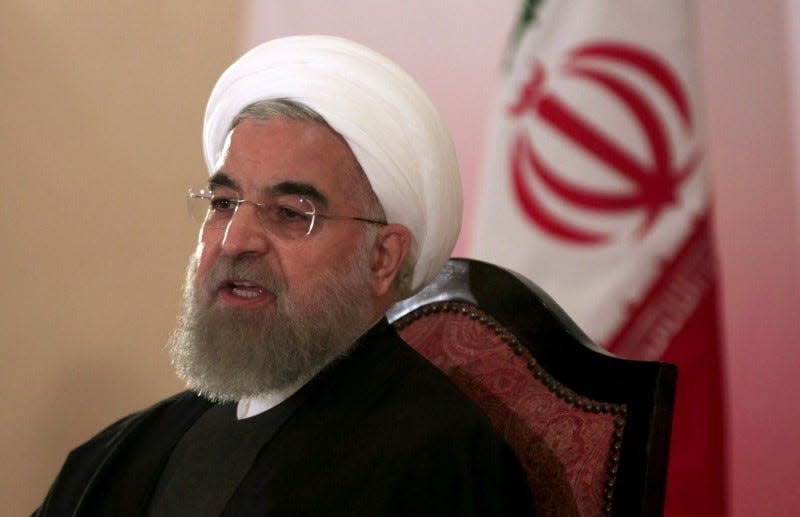State Department: $400 million cash payment to Iran was contingent on US prisoner release

The State Department says that a $400 million cash payment to Iran was contingent on the release of American prisoners.
Spokesman John Kirby says that negotiations over the US's returning Iranian money from a decades-old account was conducted separately from a prisoner swap in January, in which seven Iranians detained in the US were exchanged for Washington Post reporter Jason Rezaian and three other Iranian-American prisoners.
But Kirby acknowledged for the first time that the US withheld delivery of the cash as leverage until the US citizens had left Iran.
According to The Wall Street Journal, the US refused to hand over the $400 million cash payment that was being held at Geneva Airport "until a Swiss Air Force plane carrying three freed Americans departed from Tehran."
The release of the prisoners and of the $400 million to Iranian control occurred January 17.
Kirby spoke after The Wall Street Journal reported that the departures of the crisscrossing planes were linked.
Administration officials initially denied that the $400 million cash transfer was tantamount to critics' assertion of a ransom payment, insisting that the funds were part of a $1.7 billion financial settlement that the US had reached with Iran as part of the nuclear deal.
"As we've made clear, the negotiations over the settlement of an outstanding claim ... were completely separate from the discussions about returning our American citizens home," Kirby told The Journal, which first reported the $400 million cash payment, earlier this month.
"Not only were the two negotiations separate — they were conducted by different teams on each side, including, in the case of The Hague claims, by technical experts involved in these negotiations for many years," he added.

AP
That President Barack Obama failed to disclose the transfer of foreign hard currency to Iran by an unmarked cargo plane raised initial questions about the administration's transparency in its dealings with Iran, however.
That scrutiny is bound to intensify now that the State Department has admitted to withholding the funds until the prisoners were released from Iranian custody — a move that some might perceive as the US effectively allowing Iran to use American detainees as bargaining chips.
"There are arguments by some analysts that downplay the transfer as a ransom payment because this was money owed to Iran in principle and interest," Amir Toumaj, an Iran expert at the Washington, DC-based think tank Foundation for Defense of Democracies, told Business Insider earlier this month.
"But we wouldn't be having this discussion if the Islamic Republic were a government that abided by international norms and did not arbitrarily hold hostages as bargaining chips," he said.
The prisoner swap fueled skepticism about the extent to which the US may have appeased Iran in the name of finalizing the landmark nuclear deal. The exchange was later revealed to have been a year in the making, despite claims by administration officials that the subject of a prisoner release was never broached during nuclear-related negotiations.
The swap was also finalizedon the same day that the nuclear deal was implemented and the nuclear-related sanctions on Iran were lifted — a "coincidence," as officials characterized it, that left some experts wondering whether the exchange was aimed at bolstering overall support for the deal inside Iran.
"The administration announced the transfer of the $1.7 billion, of which the $400 million is the first installment, in January," Toumaj said.
"Still, the timing of this first installmentis suspicious," he added. "And it's difficult to imagine that the prisoner swap and money transfer were not part of a quid pro quo arrangement."
RELATED: See images from the prisoner release
The Associated Press contributed to this report.
More from Business Insider:
